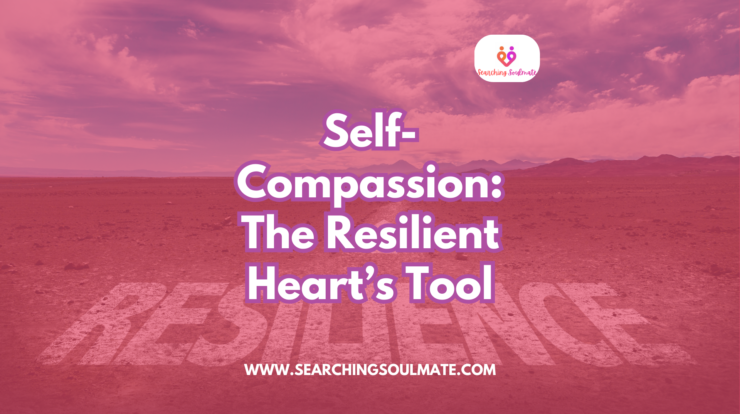
Do you know how often we are too hard on ourselves these days? In today’s fast-paced, high-pressure world, it is easy to be hard on yourself.
Imagine if there was an easy way to build resilience like building a moat against negative self-talk and unhealthy mindsets.
Self-compassion is the answer to this.
It’s a magic tool for the journey of emotional grooming that helps you grow stronger from the inside out. So, how does it work, and how do you start practicing it? Let’s find out!
Why is self-compassion important when doing emotional grooming?
You may ask, “Isn’t being self-compassionate just being too soft on myself?” In reality, self-compassion is all about resilience. It’s giving to yourself what you would give a friend when things get tough – such as care and compassion. That way, you can recover rapidly and feel prepared for life’s ups and downs. But that’s not all yet. Here’s why it is so effective:
Supports Emotional Resilience: Self-compassion lets you better survive the storm.
Minimizes Anxiety and Stress: It acts like a buffer, protecting you from constant self-criticism that plunders your mental energy.
Boosts Self-Esteem: When you treat yourself nicely, you are less likely to lose, be easily defeated by setbacks, and will realize your value.
What About Forgiveness? It’s Essential Too!
Forgiveness is releasing others from your hook, releasing grudges against yourself. Ever found yourself replaying old mistakes in your mind, criticizing yourself, or wishing it were otherwise? Self-compassion means freeing us from that cycle. Remember how holding onto past mistakes only blocks your path toward self-growth.
How Does Self-Compassion Support in Breaking Negative Self-Talk?
These tiny voices in your head chirping: “I’m not good enough,” or “I always mess things up.” Self-compassion gives you the tools for quieting that voice, and here’s why it works:
It Shifts Your Perspective: When you can be compassionate toward yourself, you are less likely to dwell on your flaws but tend to focus more on what you do well.
Creates a Safe Inner Environment: Self-compassion allows you to feel okay about confession of flaws since, frankly speaking, they don’t make of you.
Builds Emotional Strength: The more one is given practice in self-compassion, the stronger they are against negativity and self-doubt.
Imagine a friend came to you feeling the way you feel right now. What would you say to them? You wouldn’t belittle or criticize them, would you? Instead, you’d offer comfort. Now, try giving yourself that same comfort. It is a small shift, but it can change everything.
2. Challenge Negative Thoughts – Are They True?
The next time you get embroiled in a negative thought cycle, think again, and challenge it. Would you say this to the person closest to you? Usually, these thoughts have little to do with reality. Just by challenging them, you will begin to see the truth.
3. Practice Gratitude!
Counting your blessings is not a cliché, but the real deal. Take only a few minutes daily to write down what you are thankful for, however minor the things may be. This is a good reminder of all the good in your life and helps shift your focus away from negative self-talk.
4. Practice Self-Care – It’s Not Just About Pampering!
Self-care isn’t about bubble baths or massages. That’s giving yourself what you need to feel good, mentally and physically. Maybe it’s a nature walk, reading a good book, or rest. Identify what nurturing feels like to you.
Real-Life Examples: Putting Self-Compassion to the Test!
Imagine this: You just missed an important opportunity at work. The old you might’ve gone down the rabbit hole of self-doubt, thinking, “I’m a failure.” But through self-compassion, you pause, take a breath, and remind yourself that everyone makes mistakes. You focus on learning from it rather than beating yourself up. See the difference?
Or perhaps a third: You fought with a good friend. You do not beat yourself up. Instead, you think to yourself with compassion. Maybe you think, “I am only human; it’s okay to disagree.” That kind of shift helps one keep the feelings in perspective and not feel bad about oneself.
Dealing with Failure and Failure to Perform: Treat Yourself with Kindness!
Has anything gone wrong? Deep breath time: failure is common to everyone, and we still throw stones at our reflection about it. Remind yourself of this the next time things go wrong:
Acknowledge Your Work: Instead of paying attention to the end product, focus on what went into the work.
Take this failure and learn from it. Ask yourself, “What can I gain from this?
Allow Yourself to Grieve: It’s okay to feel disappointed. Give yourself time, and don’t rush the process.
How Self-Compassion Builds a Resilient Mindset!
Self-compassion isn’t just a feel-good strategy; it’s a resilience-building tool. When you nurture a compassionate mindset, you naturally become more patient, confident, and optimistic. Here’s how it strengthens you:
You Bounce Back Faster: Mistakes don’t break you; they strengthen you.
A Strengthening of Self-Worth: You do not rely so much on the validation of others because you know your own worth.
Relief from Stress: Self-compassion relieves stress by lessening the weight of the situation. This way, it is easier to keep your cool.
It feels strange to be a newcomer to self-compassion. You have been so used to beating yourself up that kindness feels. almost foreign. Okay, okay, that’s okay. It takes time. Let’s start small, and let’s remember that every little effort counts. Here are some tips that can help you get started:
Start with small gestures: Try giving yourself one compliment each day.
Celebrate Tiny Wins: Don’t wait for big accomplishments to appreciate yourself. Celebrate small victories too!
Allow Yourself to Make Mistakes: Remind yourself that perfection isn’t the goal.
Tips to Keep Your Self-Compassion Journey Going!
Building self-compassion is an ongoing process, but with some effort, it can become second nature. Here are more tips to keep you motivated:
Journal Your Thoughts: Writing helps you process feelings and identify negative patterns.
Practice Mindfulness: It will anchor you while providing awareness about your thoughts and emotions, mainly.
Keep good company. Surround yourself with people who uplift and inspire you.
CONCLUSION
Often, self-compassion may appear as a small action, but it has serious effects. You develop emotional resilience through being treated with kindness and forgiveness to continue navigating the ups and downs of life gracefully. You do not have to be perfect, and that’s perfectly all right. So take a deep breath, pat yourself on the back, and remind yourself-you’re doing your best.
Ready to take that first step on the road to self-compassion? Don’t wait! Do it today – for it is a gift for your heart.
Read more from Searching Soulmate:
- The Power of Cultural Events in Networking: How Pujo Adda Creates Strong Personal and Professional Bonds
- Community Matters: 3 Keys to Happiness and Health
- Pujo Adda: Where Past Meets Present and Memories are Born
Follow Our Socials:






